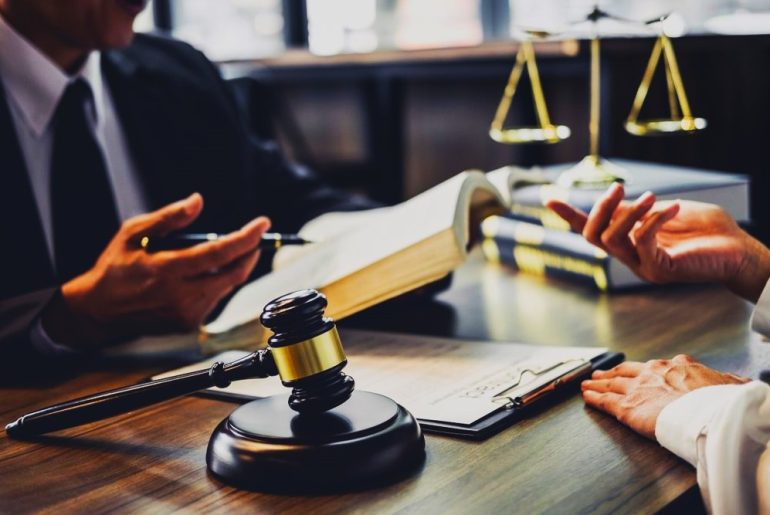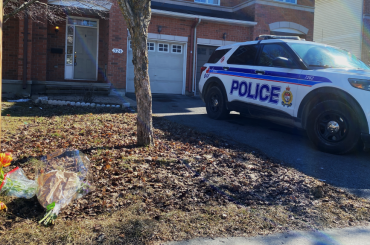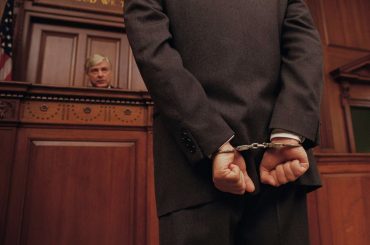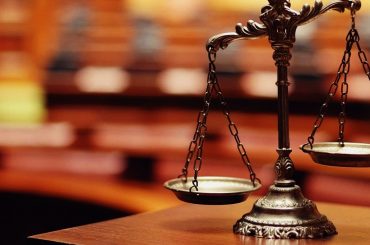Navigating the legal system can often feel overwhelming, especially when facing criminal charges. One concept that might come up in your journey through this system is that of ‘dropped charges.’ But what exactly does this mean? In simple terms, when Drop Charges are dropped in a criminal case, it means the prosecutor has decided not to continue with the prosecution of the case against you. This could happen for various reasons, which we’ll explore in this article.
Understanding the idea of dropped charges is crucial if you’re involved in a criminal case. It can affect the course of your legal journey significantly. Knowing about this possibility, and under what circumstances it might occur, can provide some relief and clarity during what is often a stressful and uncertain time. In this article, we’ll break down this concept into easy-to-understand pieces, helping you to better comprehend how and why charges can be dropped, and what it means for someone involved in a criminal case.
What Happens if Your Charges Are Dropped?
When your charges are dropped, it’s like a big weight is lifted off your shoulders. Legally, it means the prosecutor has decided not to go ahead with your case. Here’s what happens:
- No More Court Dates: You don’t have to go to court for those charges anymore.
- No Trial: Since the case is not moving forward, there won’t be a trial.
- No Criminal Penalties: Without a trial and conviction, you won’t face penalties like fines or jail time for that charge.
- Relief and Reduced Stress: Personally, getting your charges dropped can bring a huge sense of relief. The stress and worry about legal outcomes are greatly reduced.
However, remember that this doesn’t erase the arrest from your record, and the charge could be brought up again under certain circumstances.
Why Would a Prosecutor Decide to Drop a Charge?
There are several reasons why a prosecutor might decide to drop a charge. Here are a few, with examples:
- Insufficient Evidence: If there’s not enough evidence to likely win the case in court, the prosecutor might drop the charge. For example, if witnesses are unreliable or there’s not enough physical evidence.
- Evidence Issues: Sometimes, the evidence might have been obtained illegally (like through an unlawful search), and therefore can’t be used in court.
- Victim’s Decision Not to Cooperate: In cases like domestic violence, if the victim decides not to cooperate or testify, the prosecutor might drop the charge.
- Defendant’s Cooperation: If you agree to help in another case, like providing information on a bigger crime, your charge might be dropped.
- Procedural Errors: Mistakes in the legal process, like improper filing of charges or delays, can lead to charges being dropped.
- Humanitarian Reasons: Sometimes, charges are dropped due to the age or health of the accused, or if it’s a first-time minor offense.
How Do You Find Out if Your Charge Gets Dropped?
Finding out if your charge has been dropped is a key step in your legal journey. Here’s how you can check the status:
- Consult Your Attorney: The most reliable way to find out if your charge has been dropped is to speak with your criminal defense attorney. They have direct lines of communication with the court and the prosecutor’s office and can provide accurate and up-to-date information.
- Check with the Court Clerk: You can also contact the court clerk of the court where your case is being heard. They can inform you about the current status of your case. Remember to have your case number handy for quick reference.
- Other Reliable Sources: In some instances, you may be notified by mail or phone call about the status of your case. However, always verify any information with your attorney or the court to avoid misunderstandings.

Can a Prosecutor Reinstate Your Dropped Charge?
Yes, a prosecutor can reinstate a dropped charge under certain circumstances. Here’s a brief overview of how and why this might happen:
- New Evidence: If new evidence emerges that significantly strengthens the case against you, the prosecutor may decide to refile the charges. This new evidence could provide a clearer link to the alleged crime.
- Legal Process:
- Refiling Charges: The process involves the prosecutor re-initiating the case by filing the same charges again. This is typically done if the prosecutor believes they now have a stronger case.
- Time Limits: There are often statutes of limitations that dictate how long after an event charges can be filed or refiled. The specifics depend on the type of crime and jurisdiction.
- Double Jeopardy: It’s important to note that the principle of double jeopardy, which prevents someone from being tried twice for the same offense, does not apply in the case of dropped charges. Double jeopardy only applies after a verdict (guilty or not guilty) has been reached in a trial.
- Prosecutorial Discretion: Ultimately, the decision to reinstate charges lies with the prosecutor. They will consider the strength of the evidence, the likelihood of a conviction, and whether it’s in the public interest to pursue the case again.
Is Dropped the Same as “Dismissed”?
The terms ‘dropped’ and ‘dismissed’ are often used interchangeably in casual conversation, but they have different meanings in the legal world.
- Dropped Charges: This is when the prosecutor decides not to pursue the case. This can happen before or after the charges are formally filed. It’s often a result of insufficient evidence, a plea bargain, or other factors that make the prosecutor believe that continuing with the case isn’t in the public interest.
- Dismissed Charges: A dismissal happens when a judge decides to end the case. This can occur at various stages of the legal process, such as after a motion to dismiss is filed by the defense, if there’s a lack of evidence, or if there are legal issues with how the evidence was obtained.
Key Differences:
- Authority: Dropped charges are at the discretion of the prosecutor, while dismissed charges are a judicial decision.
- Stage of the Case: Charges can be dropped before or after they’re filed, but dismissal typically occurs after charges are filed.
Can Charges Get Dropped Because of an Illegal Search?
Yes, charges can be dropped if they are based on evidence obtained from an illegal search. The Fourth Amendment protects you from unreasonable searches and seizures. Here’s how it works:
- Example of Illegal Search: Suppose police enter your home without a warrant or valid consent and find stolen property. If they didn’t have a lawful reason to be there, the search could be deemed illegal.
- Suppression of Evidence: If a search is illegal, any evidence gathered from that search can be suppressed, meaning it can’t be used against you in court. This is known as the “exclusionary rule.”
- Impact on the Case: If the key evidence against you is suppressed, the prosecutor might not have enough evidence to proceed, leading to dropped charges.
Can Charges Get Dropped Because the Police Did Not Read Me My Miranda Rights?
Yes, charges can potentially be dropped if the police did not read you your Miranda rights under certain conditions. Here’s a more detailed explanation:
- Miranda Rights Overview: Miranda rights, stemming from the U.S. Supreme Court case Miranda v. Arizona, must be read by law enforcement officers to a suspect before questioning them while in custody. These rights include informing the suspect of their right to remain silent and that anything they say can be used against them in court, as well as their right to an attorney.
- Impact of Not Receiving Miranda Rights:
- If you were not read your Miranda rights during a custodial interrogation, any statements or confessions you made may not be admissible in court.
- The exclusion of these statements can significantly weaken the prosecution’s case, especially if their case heavily relies on your statements made during interrogation.
- Dropping Charges:
- Based on the weakened state of the prosecution’s case due to the inadmissibility of key evidence (like a confession), the prosecutor might decide to drop the charges.
- However, it’s important to note that charges being dropped is not automatic. The decision depends on how critical the excluded evidence is to the overall case.
- Consult Legal Counsel:
- If you believe your Miranda rights were violated, it’s essential to discuss this with a criminal defense attorney. They can assess how this violation might impact your case and argue for the exclusion of any statements made without Miranda warnings.
How Soon Can My Charges Get Dropped?
The timeline for dropping charges varies greatly and depends on several factors:
- Early Stages: Sometimes, charges are dropped quickly, such as before the arraignment if there’s insufficient evidence.
- Throughout the Legal Process: Charges can be dropped at any stage of the process, including during the investigation, after the preliminary hearing, or even during the trial if new evidence or legal issues arise.
- Influencing Factors: The strength of the evidence, legal errors, and prosecutorial discretion all influence how soon charges might be dropped.
Can a Criminal Defense Counsel Help?
Yes, a criminal defense counsel can be extremely helpful in a variety of ways when you’re facing criminal charges. Their assistance can be crucial in determining the outcome of your case. Here are some of the key ways in which a criminal defense attorney can help:
- Legal Knowledge and Expertise: Criminal defense lawyers have a deep understanding of the law, legal procedures, and the criminal justice system. They can navigate complex legal issues and provide informed guidance on your case.
- Case Assessment: An attorney can evaluate the strengths and weaknesses of your case, including assessing the evidence against you and identifying any legal flaws or procedural errors, such as violations of your rights.
- Negotiations with Prosecutors: Defense lawyers often negotiate with prosecutors regarding the charges and penalties. This can include negotiating plea bargains, where charges may be reduced or dropped in exchange for a guilty plea to a lesser offense or other concessions.
- Representation in Court: If your case goes to trial, a defense attorney represents you in court, argues on your behalf, examines and cross-examines witnesses, and strives to ensure a fair trial.
- Filing Motions and Appeals: Your attorney can file various legal motions, including motions to dismiss charges or to suppress evidence if it was illegally obtained. They can also handle appeals if necessary.
- Strategic Planning: A defense attorney can develop a strategy based on the specifics of your case, whether it’s pushing for a dismissal of charges, preparing for a plea negotiation, or gearing up for a trial.
- Support and Guidance: Facing criminal charges can be stressful and confusing. A defense lawyer can provide clarity, explaining the process, your rights, and what you can expect at each stage.
- Protection of Your Rights: Throughout the criminal process, your attorney works to protect your rights, ensuring that you’re treated fairly by the legal system.
- Investigation and Evidence Gathering: They can conduct their own investigation, gather evidence, and use expert witnesses to strengthen your defense.
- Avoiding Self-Incrimination: An attorney can advise you on what to say and what not to say, helping you avoid self-incrimination.
Conclusion:
In conclusion, the journey through the criminal justice system is complex and multifaceted. Knowledge of how dropped charges work, along with professional legal guidance, is key to making informed decisions and successfully managing your case.




